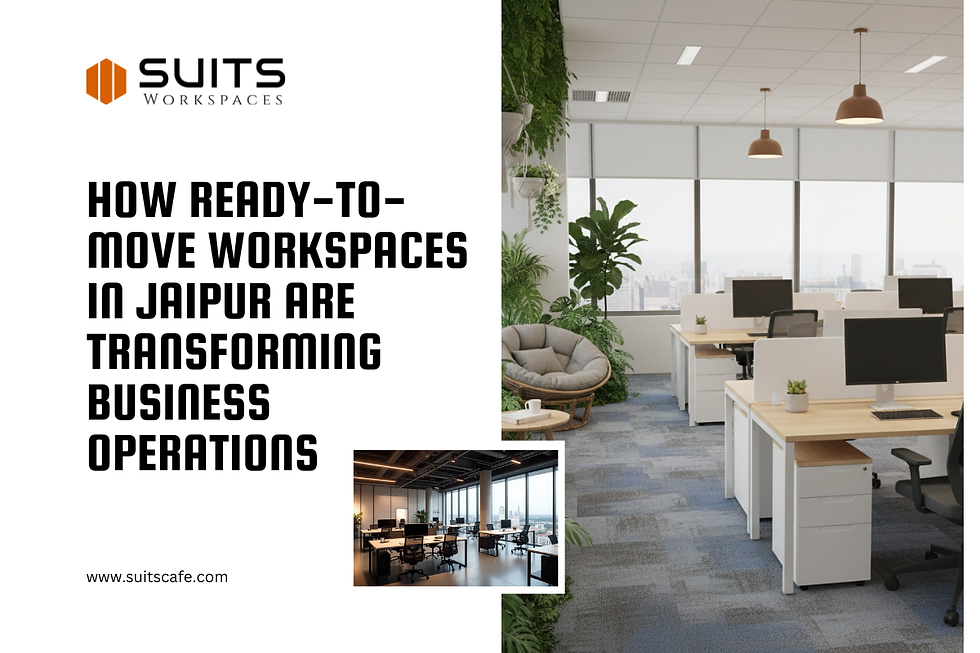Coworking for Freelancers: Breaking the Isolation Barrier
- Rajpreet Singh
- Sep 11, 2023
- 2 min read

Freelancing offers freedom and flexibility, but it can also come with a sense of isolation. Working alone from home or a coffee shop may sound appealing initially, but over time, it can lead to feelings of loneliness and a lack of motivation. Enter coworking spaces – a game-changer for freelancers seeking to break the isolation barrier while enjoying the benefits of an independent career. In this blog, we'll explore how coworking can transform the freelancing experience.
The Freelancer's Dilemma: Isolation and Loneliness
Freelancers often start their careers with excitement, relishing the idea of working independently, free from office politics and commutes. However, the reality can be quite different. Isolation can creep in, leading to several challenges:
Loneliness: Working alone can lead to feelings of loneliness, which can affect mental well-being and motivation.
Lack of Accountability: Without colleagues or a structured environment, it's easy to procrastinate or lose focus.
Limited Networking: Freelancers may miss out on valuable networking opportunities that can lead to new clients, collaborations, and professional growth.
Professional Isolation: The absence of peer interaction can limit learning and skill development.
Coworking: A Solution to Freelancer Isolation
Coworking spaces provide a remedy to these challenges, offering freelancers a vibrant, shared workspace that fosters collaboration, community, and productivity. Here's how coworking breaks the isolation barrier:
1. A Sense of Community:
Coworking spaces create a sense of belonging. Freelancers become part of a diverse community of professionals who share their challenges and triumphs. This community aspect can combat the loneliness often associated with freelancing.
2. Networking Opportunities:
Coworking spaces frequently host events, workshops, and networking sessions. These activities provide freelancers with opportunities to meet potential clients, collaborators, and mentors.
3. Increased Productivity:
The structured environment of a coworking space can boost productivity. The absence of household distractions and the presence of like-minded professionals can inspire focus and discipline.
4. Skill Enhancement:
Coworking environments encourage knowledge sharing and skill development. Freelancers can learn from their peers, attend workshops, and gain insights that contribute to their professional growth.
5. Enhanced Work-Life Balance:
Coworking allows freelancers to separate their work from their personal life. Leaving the house and going to a dedicated workspace can improve work-life balance and reduce the risk of overworking.
6. Mental Well-being:
Regular social interactions in a coworking space can have a positive impact on mental health. The camaraderie and support of fellow coworkers can alleviate feelings of isolation and stress.
7. Flexible Work Options:
Coworking spaces offer flexible membership options, allowing freelancers to choose the level of access that suits their needs and budgets. Whether you need a dedicated desk or occasional access, coworking accommodates your preferences.
A New Era of Freelancing
Coworking spaces have revolutionized the freelancing landscape by providing a solution to the isolation and loneliness that can accompany independent work. By joining a coworking community, freelancers can experience a sense of belonging, increased productivity, and valuable networking opportunities. As the freelancing landscape continues to evolve, coworking spaces offer a transformative solution that empowers freelancers to thrive in their careers while enjoying the benefits of social interaction and professional growth.



Comments